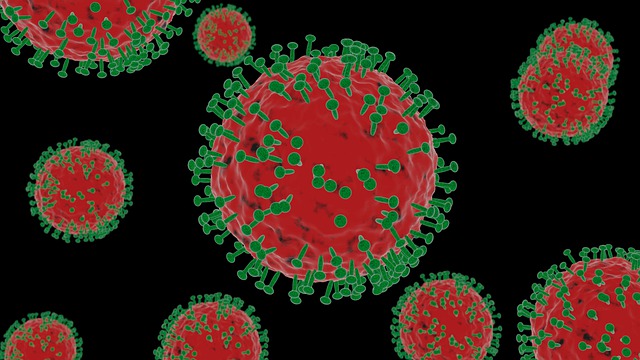Key points • Question: What is the prevalence of organ deterioration in long COVID at 6 and 12 months post-COVID-19? • Findings: In a prospective study of 536 individuals, primarily non-hospitalized, all were symptomatic at 6 months and 59% had single organ impairment. Although symptom burden decreased, organ impairment persisted in all 331 followed 12 months after COVID-19. • Significance: Organ impairment in long COVID has implications for symptoms, quality of life, and longer-term health, indicating the need for integrated long COVID prevention and care. |
Multi-Organ Impairment and Long COVID: A 1-Year Prospective Longitudinal Cohort Study
Goals
To determine the prevalence of organ impairment in long COVID patients at 6 and 12 months after initial symptoms and explore links with clinical presentation.
Design
Prospective cohort study.
Methods
In individuals recovered from acute COVID-19, we evaluated symptoms, health status, and multi-organ tissue characterization and function.
Setting
Two non-acute healthcare settings (Oxford and London). Physiological and biochemical investigations were performed at baseline in all individuals, and those with organ damage were reevaluated.
The main measures
The primary outcome was the prevalence of single-organ and multi-organ impairment at 6 and 12 months post-COVID-19.
Results
A total of 536 people (median age 45 years, 73% women, 89% white, 32% healthcare workers, 13% acute hospitalization for COVID-19) completed the baseline assessment (median: 6 months post-COVID-19). ; 331 (62%) with organ impairment or incidental findings had follow-up, with reduced symptom burden from baseline (median symptoms 10 and 3, at 6 and 12 months, respectively).
Extreme dyspnea (38% and 30%), cognitive dysfunction (48% and 38%), and poor health-related quality of life (EQ-5D-5L < 0.7; 57% and 45%) were common to the 6 and 12 months, and associated with female sex, younger age, and single organ impairment.
Single-organ and multi-organ impairment was present in 69% and 23% at baseline, and persisted in 59% and 27% at follow-up, respectively.
Conclusions
Organ impairment persisted in 59% of 331 people followed 1 year after COVID-19, with implications for symptoms, quality of life, and longer-term health, indicating the need for prevention and integrated long COVID care.
Trial registration: ClinicalTrials.gov Identifier: NCT04369807
Comments
Comprehensive new study of organ deterioration in patients with long COVID over 12 months shows that organ damage persisted in 59% of patients a year after initial symptoms, even in those who were not severely affected when diagnosed the virus for the first time.
Comprehensive new study of organ deterioration in patients with long COVID over 12 months shows that organ damage persisted in 59% of patients a year after initial symptoms, even in those who were not severely affected when diagnosed the virus for the first time.
The study, published in the Journal of the Royal Society of Medicine , focused on patients who reported extreme dyspnea, cognitive dysfunction, and poor health-related quality of life. 536 patients with long COVID were included in the study. 13% were hospitalized when first diagnosed with COVID-19. 32% of the people who participated in the study were health workers.
Of the 536 patients, 331 (62%) were identified with organ impairment six months after their initial diagnosis. These patients were followed six months later with a 40-minute multi-organ MRI ( Perspectum’s CoverScan ), analyzed in Oxford.
The findings confirmed that 29% of long COVID patients had multiorgan impairment, with persistent symptoms and reduced function at six and twelve months. 59% of long COVID patients had single organ impairment 12 months after initial diagnosis.
A member of the research group, Professor Amitava Banerjee, professor of clinical data science at the UCL Institute of Health Informatics, said: "Symptoms were common at six and twelve months and were associated with female sex. , younger age, and single-organ deterioration."
The study reported a reduction in symptoms over six to 12 months (extreme dyspnea in 38% to 30% of patients, cognitive dysfunction in 48% to 38% of patients, and poor health-related quality of life in 57% to 45% of patients).
Professor Banerjee added: “Several studies confirm the persistence of symptoms in people with long COVID of up to a year. Now we add that three in five people with long COVID have deficiency in at least one organ, and one in four has deficiency in two or more organs, in some cases without symptoms.”
He said: “The impact on quality of life and time away from work, particularly on healthcare workers, is a major concern for individuals, healthcare systems and economies. "Many healthcare workers in our study had no prior illnesses, but of 172 of those participants, 19 remained symptomatic at follow-up and not working for a median of 180 days."
The underlying mechanisms of long COVID remain elusive, say researchers, who found no evidence from symptoms, blood tests or MRI to clearly define long COVID subtypes. They say future research should consider associations between symptoms, multiple organ impairment, and function in larger cohorts.
Professor Banerjee concluded: "Organ deterioration in long COVID has implications for symptoms, quality of life and longer-term health, indicating the need for prevention and integrated care for patients with long COVID." .
Implications for clinical practice and public health There are three practical and political implications. First, COVERCAN could be used to rule out organ deterioration and identify subgroups requiring referral to a specialist. Second, long COVID is a multi-organ condition that requires multi-organ evaluation and multidisciplinary care. Third, the low 1-year post-COVID recovery rates highlight the need for rehabilitation and integrated care, relevant to other long-term conditions. Final message Long COVID symptoms often persist after 12 months, even in those not severely affected by acute COVID-19. Diagnosis and monitoring of long COVID can be performed in non-acute settings. Continued research in multisystem assessment and pharmacotherapy for those reporting ongoing fatigue, shortness of breath, and cognitive problems is required to address the long-term burden of COVID, in parallel with mechanistic studies to understand pathophysiology. |
















